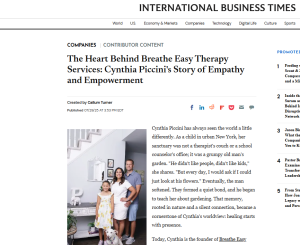If we think about our lives as a book that’s already been written, the transition out of high school for many students can represent opening a new chapter.
But that book isn’t actually written, leaving students to wonder, “What’s next?”
In the days that follow graduation, high schoolers will be asked that question by family, friends, neighbors, teachers, and even their friends.
Though asked casually, the question is a big one and can be stressful to contemplate, and its effects can be felt by many.
According to the U.S. Census Bureau, the high school completion rate in the United States for people aged 25 and older increased from 87.6% in 2011 to 91.1% in 2021 (Census.gov, 2022).
So, more kids are graduating, but how are they coping? The promise of new beginnings can be exhilarating, thrilling, and downright terrifying.
Living through the pandemic and the lockdown and online schooling that accompanied it for many puts graduates in a unique position. Their experiences may also inform their attitudes post-graduation, whether they’re attending college or entering the workforce.
In their annual survey “Stress in America,” the American Psychological Association found that young people, on the whole, are more stressed than other groups. For example, they found that 62% of women aged 18 to 34 felt “completely overwhelmed by stress.” This number was 51% for men in the same age group (APA, 2022).
For comparison’s sake, the number of men who felt this way in the 45 to 64 and 65-plus age groups was 24% and 9%, respectively. For women, the numbers were 27% and 9%, for these same groups, respectively.
Graduation is one of the largest transitions that will happen amongst these graduates. For many, they are leaving a group of friends, a school, and a routine that has sustained them and offered support during stressful times. Away from home, however, the absence of these things can loom large.
Entering a new part of life can be difficult, but not if there are effective coping strategies in place.
The American Psychological Association (2022) offers the following for those who are feeling post-graduation depression and anxiety.
Disrupt negative thinking. Often, we go to the most spectacularly awful series of events when we think of something new. It doesn’t have to be that way. Instead, visualize a positive, if not great, outcome and look at your role in making that happen.
Desensitize Yourself. Uncertainty can be the hallmark of this transition period. Surprise yourself by doing the unexpected. In that way, you’ll be more prepared when uncertainty hits.
Control What You Can: Empower yourself by voting, volunteering, or getting involved in the community.
Don’t Compare. Everyone handles stress differently, be patient with yourself.
Make Friends with You. Talk to yourself like you would a friend who has come to you for help. Think about how you would speak to them and help guide them.
Be Your Own Hero. Solving your own problems empowers you to take responsibility for your life. Take input from others, but don’t expect them to fix everything for you.
For more on coping with transitions and skills that can help, talk to us at Breathe Easy Therapy Services. You can contact us here.
References
American Psychological Association. (2022) Stress in America 2022. https://www.apa.org/news/press/releases/stress/2022/concerned-future-inflation
Bohn, J., Holtmann, J., Luhmann, M. et al. Attachment to Parents and Well-Being After High School Graduation: A Study Using Self- and Parent Ratings. J Happiness Stud 21, 2493–2525 (2020). https://doi.org/10.1007/s10902-019-00190-y
Census.gov (2022) Census Bureau Releases New Educational Attainment Data. https://www.census.gov/newsroom/press-releases/2022/educational-attainment.html





